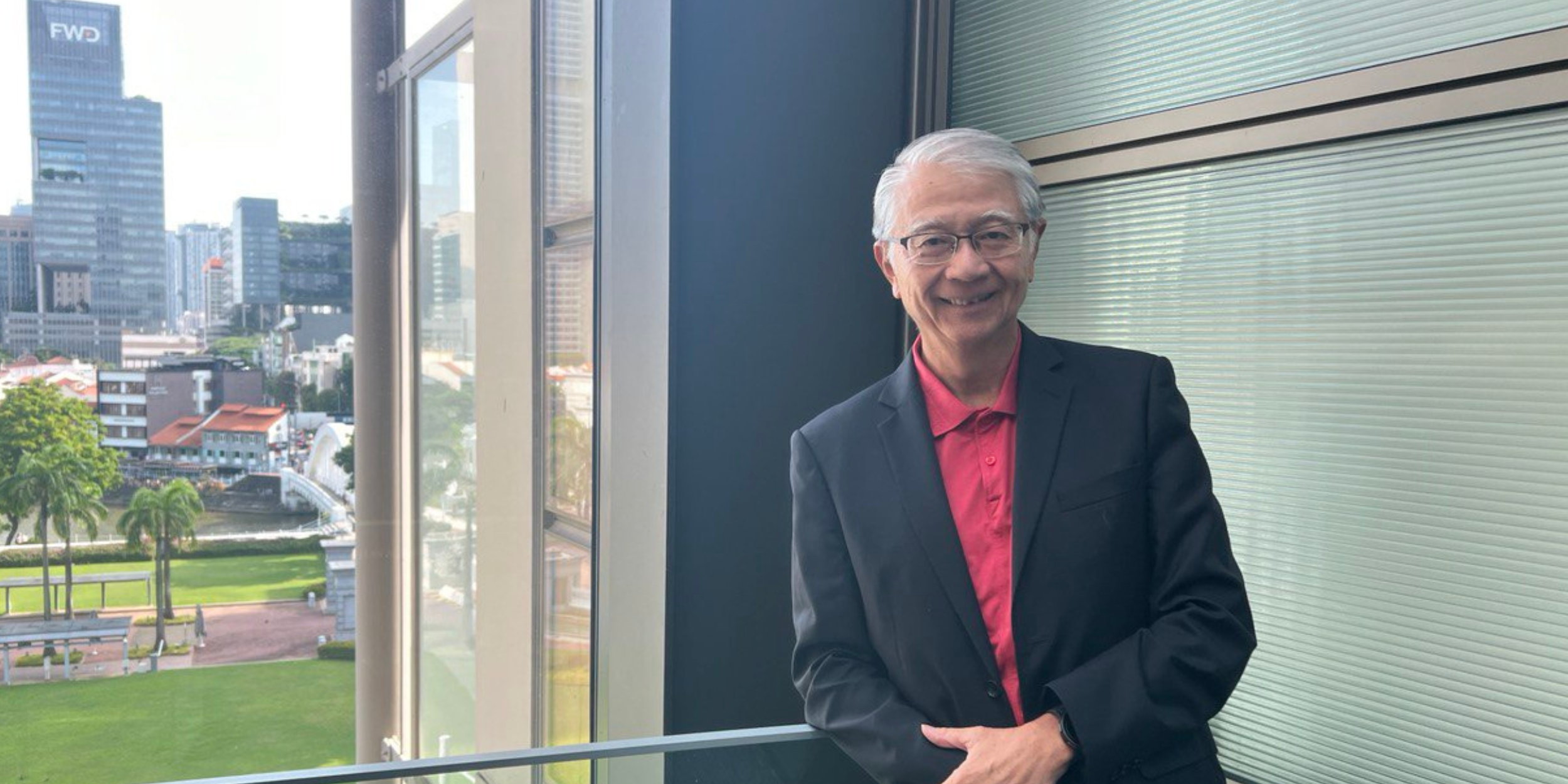THE HONOURABLE JUSTICE LEE SEIU KIN’S TIPS ON RESOLVING PESKY IT DISPUTES
His advice on how parties can better collaborate for a common goal

BY MATHANGI ELANGOVAN AND ASHUTOSH RAVIKRISHNAN
Reflecting on his career, it’s only natural for Justice Lee Seiu Kin to hone in on the most recent two decades of it, which he spent on the Bench of the Supreme Court. “We have a wonderful group of colleagues: the other judges, assistant registrars, staff… they are very stimulating, and we have good banter. I’ll miss that a lot,” he says, as he prepares to retire as a full-time judge.
From now till Jan 2027, he serves the Supreme Court as a Senior Judge. What will he do with the rest of his time? “Catch up on my personal life,” he beams, adding that travel and time with his family will be priorities. He also hopes to establish a practice in commercial arbitration and mediation.
Never one to sit idly, Justice Lee is also looking for new ways to leverage his unique expertise (he was a qualified engineer before taking up law) for the public good. One such avenue is his work as a panel expert for INTEGRAF, the Singapore Mediation Centre’s new dispute resolution framework.
It’s here that Justice Lee will be able to blend his experience of managing IT contracts—as the project manager for early versions of LawNet—and later, resolving them as a judge.
He is a strong advocate for many of INTEGRAF’s unique features, including its razor focus on conflict avoidance. “That’s because it works,” he explains. “Back when we were managing those IT vendor-client relationships, we saw ourselves as partners and not adversaries.”
“We would have regular progress meetings where vendors would report to us on the progress… and instead of pouncing on them when problems crop up, we would try to solve them together. There was a common mission: delivering the project successfully.”
He is quick to add that that also means getting the right people from the get-go—both internally and externally. Looking back at his time with LawNet, he says, “I had the good fortune of being assisted by people who were very capable and also, very enthusiastic about their work.”
NOT ALL ROSES
But it was not all rainbows and butterflies. There were, of course, difficult conversations. “I think those in IT projects will be familiar with this term: ‘requirements creep’. When you start off with an IT project, you pretty much know what you want, but there are lots of other considerations that are not foreseen. And the more you talk to people, the more the requirements grow. So, you have to somehow draw the line, or you’ll never finish the project.”
He points to a trial that he presided involving a large public organisation that sued an IT vendor for breach of contract. “The organisation wanted to upgrade their systems to be Y2K-compliant and they got a vendor who demonstrated a workable system. But the implementation was fraught with problems: requirements creep also came in and the client wanted more and more features. The vendor did not push back but when they could not deliver, they were sued for breach of contract.”
INTEGRAF would have been a valuable resource in such a case, believes Justice Lee. “The panel would have been able to step in at an early stage, rather than after things all went wrong, so that they could have obtained a solution at an early stage, instead of drifting towards a contentious dispute. Things wouldn’t have festered and maybe the vendor would have been able to deliver a workable system in time.”
Time is of the essence, especially in IT contracts, as technology runs the risk of becoming obsolete. “In large IT projects, there are many vendors and subcontractors, and you’re bound to have disputes. The key is to make sure that each dispute is resolved—maybe not 100%—but just enough for the project to move along. Any final resolution of the legal liabilities can be adjudicated after the project is over, but at least the project gets delivered. Ultimately, you don’t want to delay the final delivery, which may make the entire project obsolete from day one if the delay is serious.”
As we end our interview, we ask Justice Lee for his parting words to the legal profession, and those outside of it, as they grapple with possible frictions in the contract process.
He says, “A spirit of collaboration rather than confrontation is important. They are not your enemy but your friend. You are in it together and your common aim is to get the project completed.”
Learn more about INTEGRAF here.






